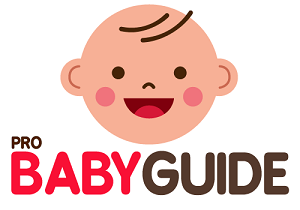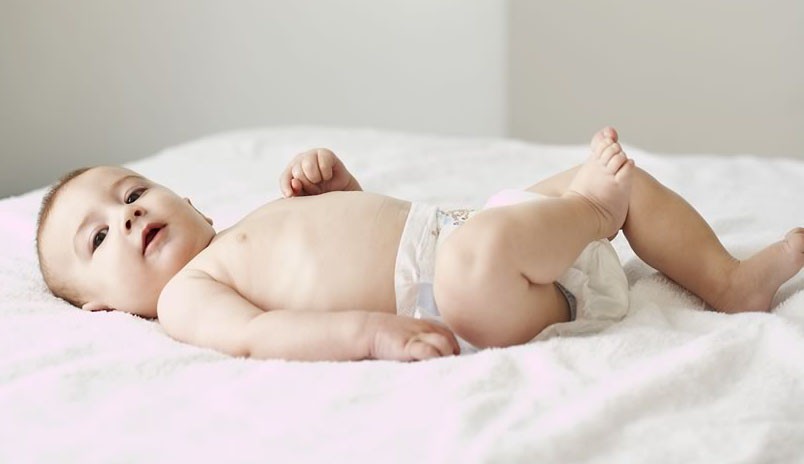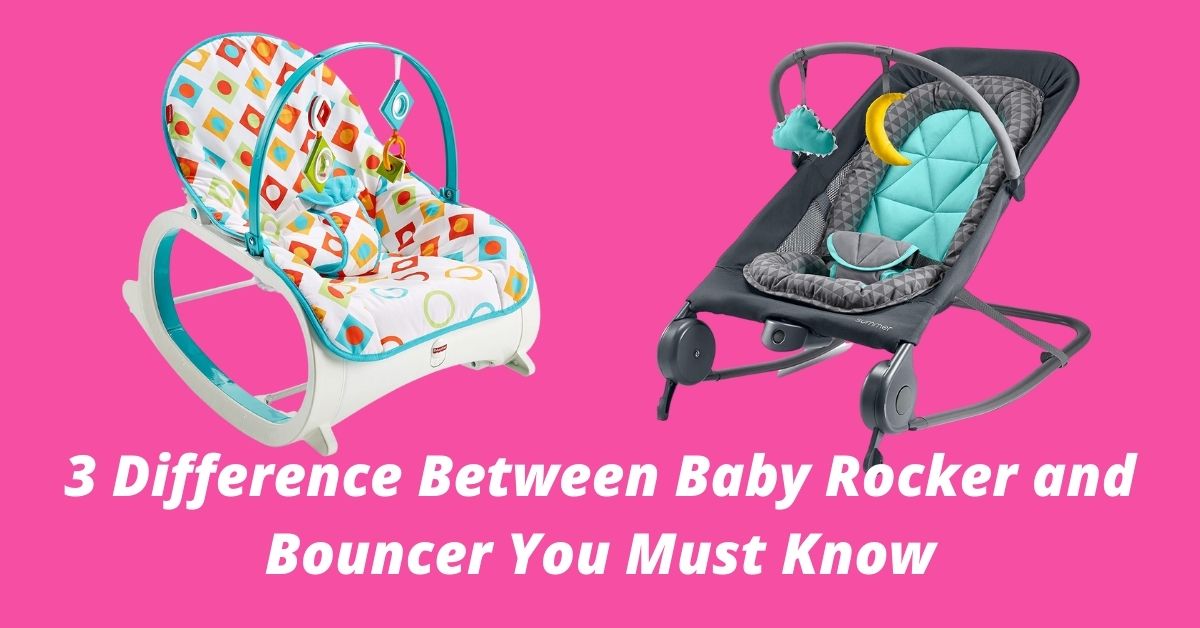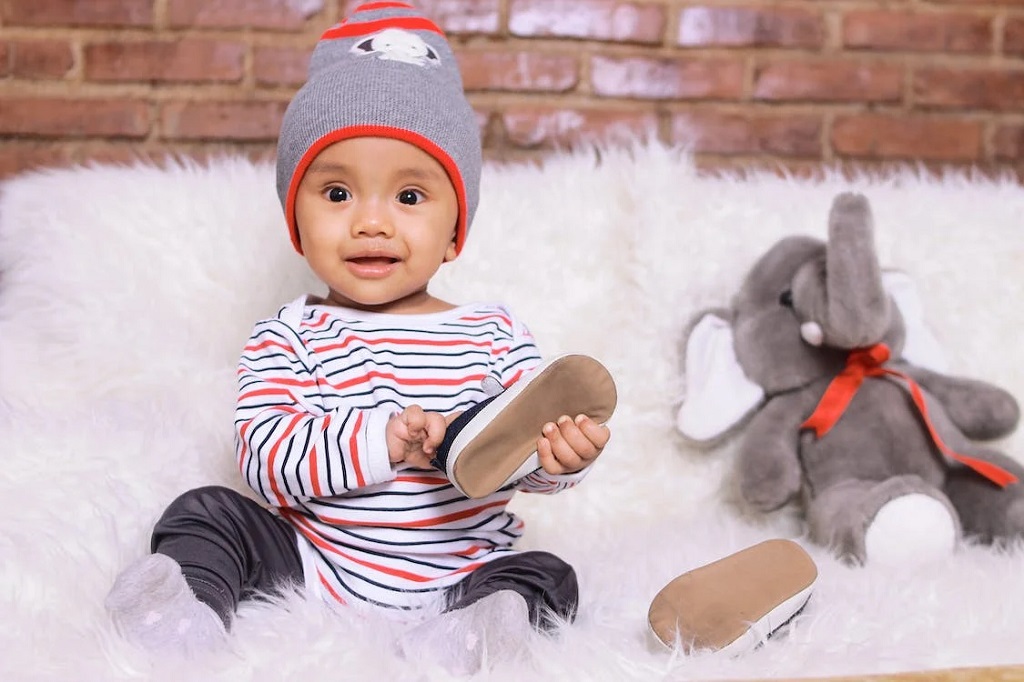A newborn should not sit in a poopy diaper for more than a few minutes. Ideally, you change the diaper promptly to prevent irritation.
Ensuring the comfort and health of a newborn is crucial, and one aspect of this is maintaining proper diaper hygiene. Babies have delicate skin that is vulnerable to rash and irritation if left in a soiled diaper for too long.
Prompt diaper changes are not only about comfort but also about preventing diaper rash and potential infections. As a parent or caregiver, being attentive to a baby’s needs includes regular diaper checks and changes. This practice supports a nurturing environment where the baby can thrive without the discomfort and health risks associated with prolonged exposure to a dirty diaper. Remember, attentive diaper care is fundamental in the early stages of a newborn’s life.
Assessing Newborn Diaper Needs
Welcome to the comprehensive guide on the diapering needs of your newest family member. When dealing with newborns, it’s crucial to understand that their comfort and hygiene are vital to their health and happiness. Diapering may seem straightforward, but it has nuances especially for first-time parents, learning to gauge the right time for a diaper change is an essential skill. Let’s dive into the specifics of why prompt diaper changes are important, the potential risks of delay, and the typical frequency of newborn bowel movements.
Importance Of Timely Diaper Changes
Changing your newborn’s diaper in a timely fashion ensures not only comfort but also prevents health complications. Moisture and bacteria from urine and feces can harm your baby’s delicate skin, leading to diaper rash or, worse, infections. A clean and dry diaper area is key to a happy and healthy baby. Attention to diaper changes contributes to overall infant care and wellbeing.
Risks Of Delayed Diaper Change
Let’s talk about the risks involved in delaying diaper changes for newborns. The following points illustrate why a prompt response to a dirty diaper is imperative:
- Diaper rash: Prolonged exposure to moisture can lead to skin irritation, known as diaper rash.
- Bacterial growth: A soiled environment is ripe for bacteria, which can cause infections.
- Discomfort: Newborns may become fussy and uncomfortable due to the wetness and full diapers.
- Urine scald: If a baby sits in a soiled diaper too long, urine can cause a burn-like condition.
Understanding Newborns’ Bowel Movement Frequency
Newborns typically have frequent bowel movements and may need a diaper change up to 10 times a day. Recognizing the norms for bowel movements can help anticipate when to check their diapers:
| Age | Frequency of Bowel Movements |
|---|---|
| First Month | After every feed |
| 1-3 Months | Several times a day |
| 3+ Months | May begin to reduce in frequency |
Bowel habits vary with each baby, but staying aware of their patterns assists in maintaining optimal hygiene.
Diaper Duration’s Effect On Newborn Health
Understanding the impact of diaper duration on a newborn’s health is critical for new parents. The length of time a baby sits in a soiled diaper can directly affect their well-being. It’s a balancing act between ensuring frequent changes and avoiding unnecessary disruptions. The key is to be attentive and responsive to a newborn’s needs while maintaining good hygiene practices to promote optimal health.
The Link Between Diaper Hygiene And Skin Health
Newborns have delicate skin that is highly susceptible to irritation. Prolonged contact with moisture and waste in a diaper can lead to diaper rash and discomfort. The presence of urine and feces increases skin pH, which can compromise the skin barrier, leading to increased risk of irritation and infection.
- Timely diaper changes help maintain skin pH balance.
- Use of barrier creams provides a protective layer on the skin.
- Airing out the baby’s bottom regularly can promote healthy skin.
Potential Infections From Prolonged Exposure
Leaving a newborn in a soiled diaper for too long can lead to more serious problems beyond diaper rash. This environment is a breeding ground for bacteria and fungi, which can result in infections. Regular diaper checks and changes, preferably every 2-3 hours, can significantly reduce this risk.
| Type of Infection | Causes | Prevention Tips |
|---|---|---|
| Bacterial | Dirty diapers, infrequent changes | Clean the diaper area with every change |
| Fungal (Candidiasis) | Moist, warm environment | Keep the area dry and use antifungal cream if prescribed |
| Yeast Infections | Prolonged exposure to feces | Change the diaper promptly after bowel movements |
Comfort And Behavioral Cues From Infants
Newborns communicate their discomfort in various ways, and it is vital to be attentive to these cues. Crying or fussiness can occasionally indicate a wet or dirty diaper. Not all babies will alert you to the need for a change, so establishing a routine check is beneficial.
- Watch for signs of discomfort or irritation around diaper changes.
- Consider a change before or after feedings.
- Check the diaper every couple of hours even if the baby seems content.
Recognizing the signs and ensuring regular changes will not only keep your baby comfortable but also prevent many health issues associated with poor diaper hygiene.
Responding To Poopy Diapers: Best Practices
As a new parent, responding to your newborn’s poopy diapers promptly and appropriately is a key element of basic baby care. Not only is it crucial for maintaining hygiene, but also for preventing diaper rashes and ensuring your baby’s comfort. This segment of the blog offers insights into recognizing when your little one needs a change, how to tackle diaper duty effectively, and the importance of disposing of used diapers safely and hygienically. Let’s master the diaper-changing game with these best practices.
Signs Your Newborn Needs A Change
Staying on top of your newborn’s needs means keeping an eye out for certain telltale signs indicating it’s time for a fresh diaper:
- Fussiness or restlessness can often signal discomfort from a wet or soiled diaper.
- A noticeable odor generally accompanies a poopy diaper and is a clear indicator a change is needed.
- Checking the diaper visually or by feeling the outside for heaviness can help assess if it’s time for action.
- Most modern diapers have wetness indicators that change color when it’s time for a change.
Step-by-step Guidance On Changing Diapers Efficiently
- Gather all essential supplies: fresh diaper, baby wipes, diaper rash cream (if necessary), and a changing pad or towel.
- Lay your baby down on a flat, secure surface and unbuckle the diaper.
- Use baby wipes to clean your newborn’s skin gently but thoroughly. Wipe from front to back to prevent infection.
- Apply any necessary diaper rash cream, then place the clean diaper under your baby.
- Ensure the diaper is snug yet comfortable, then affix the tabs. The fit should be snug but not too tight.
Remember to keep your baby attended throughout the diaper-changing process to ensure their safety.
Safe And Hygienic Diaper Disposal Methods
Post-diaper change, the way you handle soiled diapers is imperative for maintaining a healthy home environment:
- Seal the soiled diaper by using its self-adhesive tabs.
- Place the sealed diaper in a dedicated diaper bin that is lined with a disposable bag.
- Consider using biodegradable diaper bags to minimize environmental impact.
- Regularly empty the diaper bin into an outdoor trash can to prevent odors and bacterial growth.
- Always wash your hands thoroughly with soap and water after handling a used diaper.
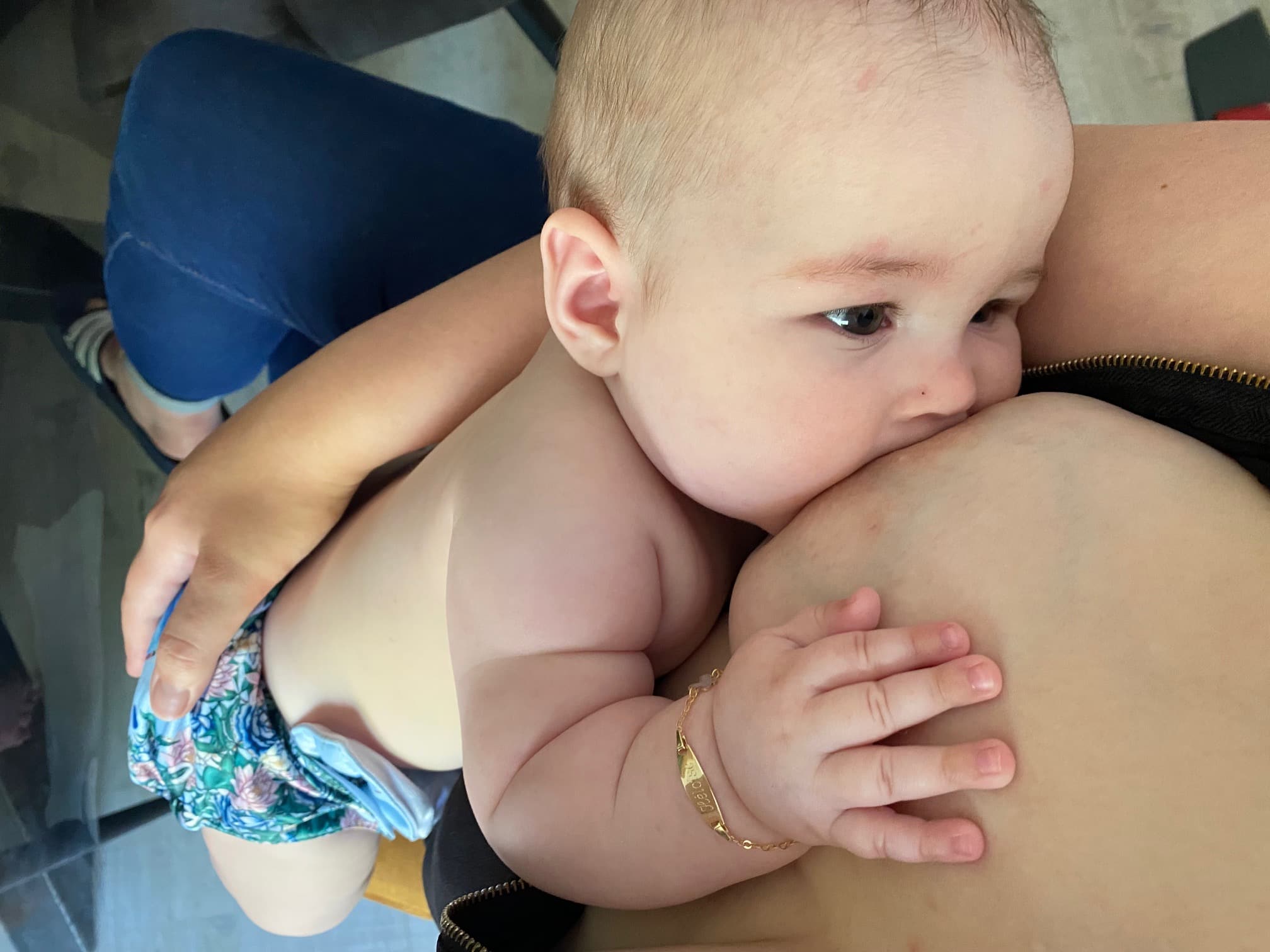
Credit: llli.org
How Long A Newborn Can Stay In A Poopy Diaper
When it comes to newborn care, timely diaper changes are paramount. Knowing the intricacies of when to change a poopy diaper can help prevent discomfort and potential skin complications. With all the duties a new parent juggles, understanding the acceptable timeframes for keeping a newborn in a soiled diaper can both enhance the baby’s comfort and ensure a smoother routine.
Medical Insights On Acceptable Timeframes
Medical professionals suggest that a newborn’s diaper should be changed as soon as possible once soiled. Stool contains enzymes and bacteria that are irritating to the skin and can cause diaper rash. A prompt diaper change not only keeps your baby comfortable but also reduces the risk of any infections or rashes.
Newborns typically require 8-12 diaper changes per day, guided by each feeding and bowel movement. Allowing a baby to sit in a poopy diaper for too long can result in:
- Diaper rash due to moisture and bacteria
- Increased risk of urinary tract infections
- Disruption in sleep patterns as a result of discomfort
While it’s ideal to change diapers immediately, it is often acceptable for a baby to wait for up to 10 minutes during the daytime, ensuring that acute discomfort is minimized.
Balancing Sleep And Diaper Changes At Nighttime
Nighttime brings unique challenges, as frequent diaper changes can disrupt a baby’s sleep. It’s crucial to balance your newborn’s rest with the need for clean diapers. Using highly absorbent overnight diapers helps to ensure your baby stays dry throughout the night.
If your baby does soil their diaper while sleeping, it’s generally advised to change them but in the least disruptive way possible. To minimize wakefulness:
- Be as gentle and quiet as possible during the change
- Maintain a dimly lit environment
- Keep interactions calm and soothing
Remember, a newborn will often wake up due to hunger rather than a dirty diaper, so coordinating changes with feeding times can align with their natural sleep cycle.
Special Considerations For Newborns With Sensitive Skin
Newborns with sensitive skin demand extra care. For these tiny tots, even the shortest exposure to a dirty diaper can trigger a rash. Parents should:
- Change the diaper immediately upon soiling
- Use hypoallergenic wipes and diapers that are designed for sensitive skin
- Consider barrier creams to prevent irritation
Monitoring your newborn’s skin for any signs of irritation and addressing each dirty diaper promptly not only keeps your baby comfortable but also averts skin distress. Sensitive skin may also benefit from more frequent diapering, potentially after every sleep cycle during the night.
The Crucial Facts For New Parents
Welcome to the world of parenthood! As new parents, understanding the nuances of newborn care is paramount for the health and well-being of your little bundle of joy. One aspect that frequently catches many by surprise is dealing with diapers, specifically, how long a newborn can stay in a poopy diaper. It’s a topic you’ll encounter daily and rounding up the facts can help you make sure your baby stays comfortable and healthy.
Summarizing Pediatricians’ Recommendations
Pediatricians emphasize the importance of prompt diaper changes to avoid diaper rash and skin irritation. Below is what they typically recommend:
- Immediate Change: Ideally, a newborn’s poopy diaper should be changed as soon as possible.
- Diaper Rash: Leaving a diaper unchanged for extended periods can lead to diaper rash due to moisture and bacteria.
- Skin Health: Frequent changes are essential to maintain the baby’s delicate skin health.
Integrating Diaper Changes Into Your Routine
Integrating diaper checks into your daily routine ensures your baby stays comfortable and rash-free. Consider these tips:
- Consistent Checks: Regularly check your newborn’s diaper every two hours and before and after feedings.
- Changing Schedule: Include diaper changes in your baby’s sleeping and feeding schedule for consistency.
- Night Time: During the night, minimal disruption is key, so a quick check when they wake for feeding is sensible.
Products That Help Monitor Diaper Condition
Certain products have been developed to help parents monitor the condition of a diaper. Here are some innovative solutions:
| Product | Description | Utility |
|---|---|---|
| Wetness Indicator Diapers | Diapers with a line that changes color when wet. | Allows for a quick visual check of diaper wetness without disturbing the baby. |
| Diaper Alarm Sensors | Devices that attach to the diaper and send alerts to your smartphone when wet. | Provides convenience and peace of mind, especially during the night or for busy parents. |
| High-Absorbency Diapers | Diapers designed to absorb more liquid, keeping skin drier. | Reduces the frequency of diaper changes, especially beneficial during long sleeps or travel. |
Frequently Asked Questions For How Long Can A Newborn Sit In A Poopy Diaper
Is Immediate Change Needed For A Poopy Diaper?
Yes, a poopy diaper should be changed promptly. Quick action prevents skin irritation and possible diaper rash. Newborns have sensitive skin, and prolonged exposure to waste can cause discomfort and potential health issues.
How Long Is Too Long For A Baby In A Dirty Diaper?
A baby should not be in a dirty diaper for more than a few minutes. Prolonged contact with feces can lead to rashes or infections. It’s best to check diapers every 1-2 hours and change them immediately if dirty.
Can A Poopy Diaper Cause A Newborn Rash?
Yes, a poopy diaper can quickly cause diaper rash in newborns. Their sensitive skin can react to moisture and bacteria, leading to redness and irritation. Prompt changing minimizes the risk of rash development and keeps the baby comfortable.
What Are The Signs A Diaper Needs Changing?
Signs include odor, sagging, or visible stool and wetness indicators. Babies might also become fussy. It’s important to check frequently, as newborns need regular changes to stay clean and dry.
Conclusion
Understanding your newborn’s needs is crucial, and timely diaper changes are a part of that. Lengthy exposure to a soiled diaper can lead to discomfort and possible skin issues for your little one. Remember, swift action is best for your baby’s health and happiness.
Make those diaper checks frequent for a contented, rash-free bottom.
